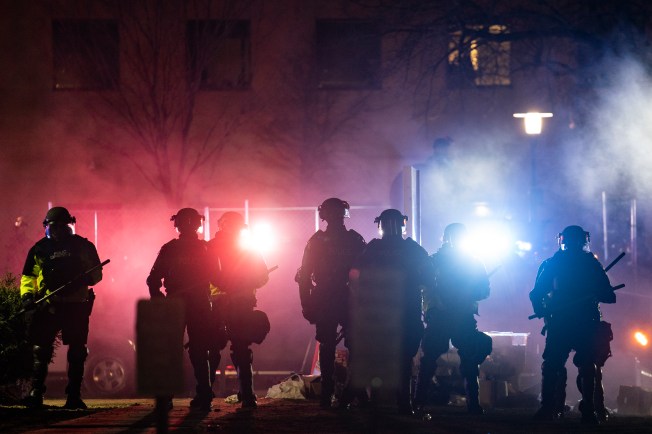As protests against police violence in the U.S. persisted, CPJ urged law enforcement in Brooklyn Center, Minnesota, and other cities to respect journalists’ rights and allow them to continue working and reporting the news. The U.S. Press Freedom Tracker, of which CPJ is a founding partner, documented at least 26 assaults, 24 arrests or detentions, and multiple reports of equipment damage and “media checkpoints” from journalists covering Black Lives Matter protests across the U.S. so far this year. CPJ has safety resources and a legal guide for journalists covering the protests.
Meanwhile in Venezuela, a proposed foreign aid law could squeeze or cut off one of the few sources of financing still available to independent news outlets in the country. The proposed legislation follows similar laws passed by authoritarian and repressive governments elsewhere in the world, including in Russia and Nicaragua. Separately, the country’s Supreme Tribunal recently ordered the daily El Nacional to pay more than US$13 million in a defamation suit.
Global press freedom updates
- Imprisoned Uyghur journalist Erkin Tursun appears in Chinese propaganda video
- Hong Kong media owner Jimmy Lai sentenced to 14 months in prison
- Journalist Absar Alam shot, wounded in Pakistan
- New regulations for social media companies in India give the government more power to censor online content – including digital news outlets. Separately, jailed Indian journalist Siddique Kappan is hospitalized after contracting COVID-19
- Vietnamese police arrest three more journalists in probe of “Clean Newspaper”
- Myanmar authorities detain Japanese journalist Yuki Kitazumi on fake news allegation
- Russian law enforcement raid student magazine DOXA, place 4 editors under home detention
- Crimean court fines chief editor of Qirim newspaper
- Journalist Jeremy McDermott faces new criminal defamation suit in Colombia
- Chilean army allegedly monitored investigative journalists
- Nicaraguan police assault journalist Kalúa Salazar, block her from leaving home
- Peruvian journalist Roberto Sánchez’s car firebombed
- Algerian journalist Rabah Karèche detained on false news and anti-state allegations
- Angolan journalist Jorge Manuel arrested, detained for five days
- Police detain Ghanaian journalist David Tamakloe overnight in relation to “false news” complaint
- Serbian radio host Daško Milinović assaulted, one suspect apprehended
- Local official orders two journalists detained during municipal meeting in Tanzania
- Palestinian journalist Muath Hamed questioned in Spain by alleged Israeli intelligence agent
- French journalist Nadiya Lazzouni receives letter with death threat, anti-Muslim slurs
Spotlight
What makes covering the environment a dangerous beat? And what are the threats and risks environmental journalists face in the course of their work, especially amid a global pandemic? Watch this panel discussion that took place live Thursday via our Instagram profile. The discussion, which marked Earth Day, was moderated by CPJ Executive Director Joel Simon and included three leading environmental journalists.
What we are reading
- A guide to anti-misinformation actions around the world — Daniel Funke and Daniela Flamini, Poynter
- Canada’s commitment to media freedom must be matched by action — Edin Omanovic and Siena Anstis, The Globe and Mail
- Line of Duty true story: How season 6 plot was inspired by a real-life crime — Patrick Cremona, RadioTimes
- Gender agenda – a reflection of hurdles women in media face — Judie Kaberia, Citizen Digital
